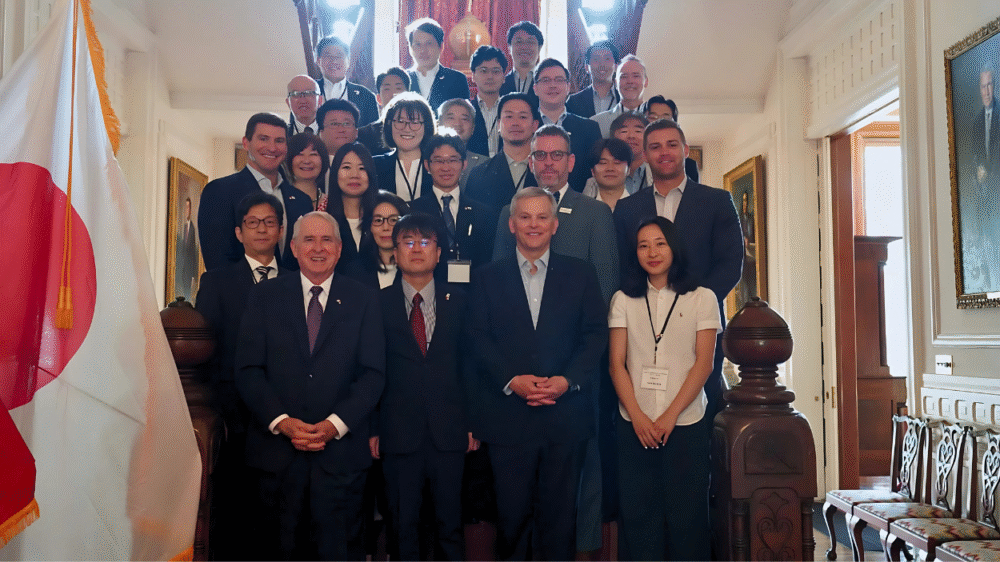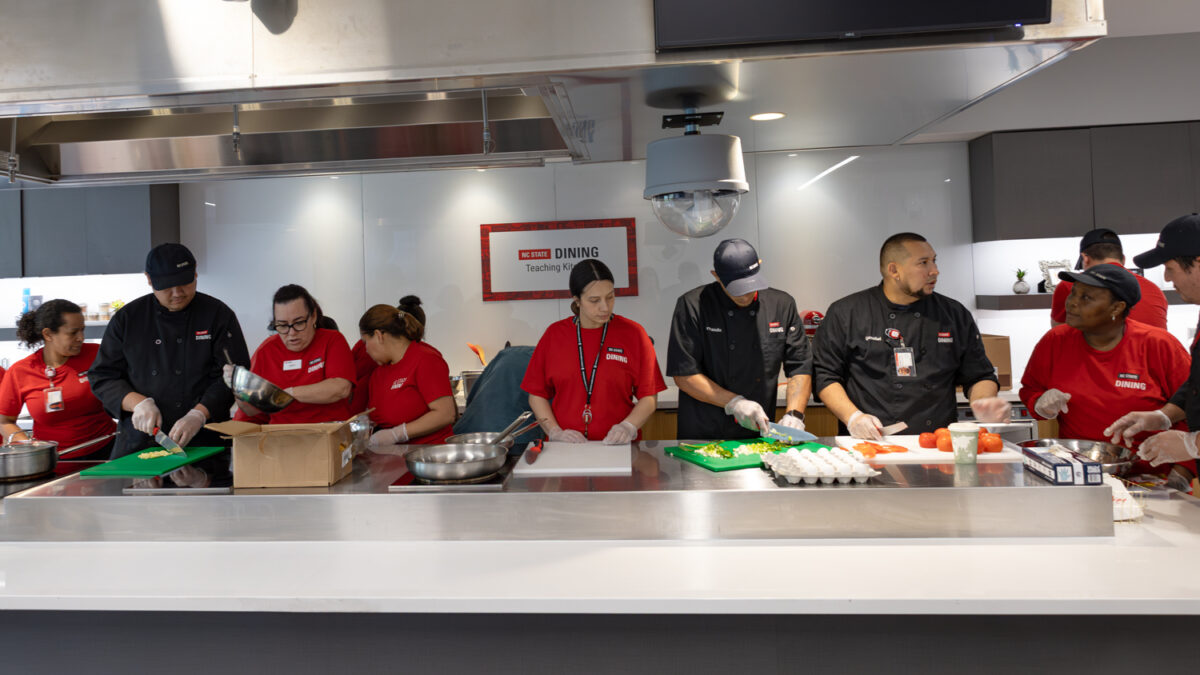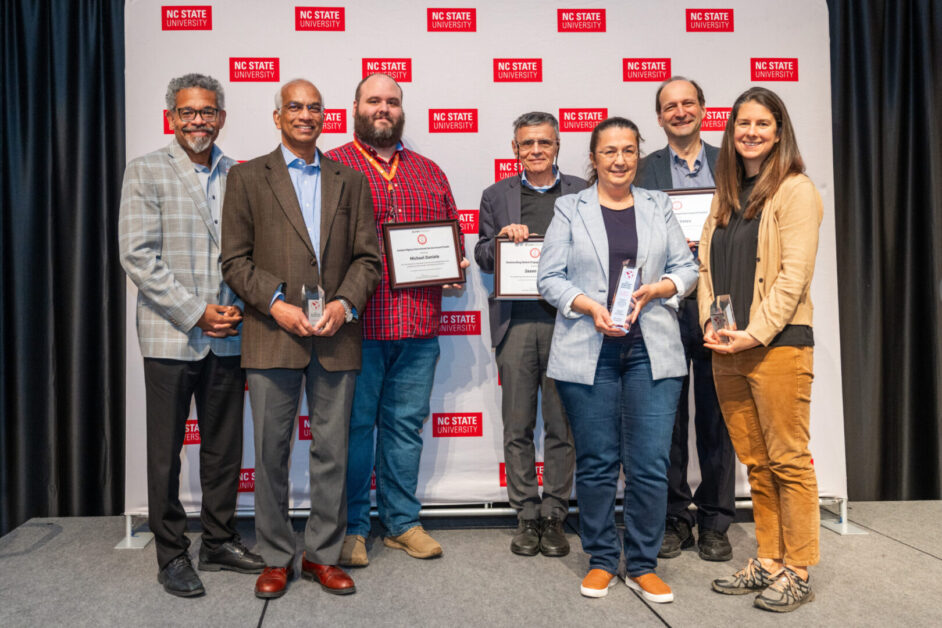GOHA Faculty Spotlight – Saad Khan
In 2024, the Global One Health Academy offered Seed Grants to support NC State faculty and EHRA professionals for seed funding for novel, interdisciplinary One Health research projects. Saad Khan (COE), was a recipient of the 2024 Seed Grant Awards for a project on using sustainable agriculture to enhance food security. Learn more about Khan and how the Global One Health Academy helped support his research on custom emulsions to promote plant growth and reduce waste through his spotlight below.
What is your lab’s research focus?
My lab focuses on three platforms. One focus is on sustainable agriculture. We also look at polymer processing and polymer product development through studying the rheology of various systems, such as hydrogels, suspensions, and photogelling systems. Lastly, we look at aerogels and foams, which are functional porous media that can be used for insulation, carbon dioxide capture and heavy metal removal to promote clean air and water.
How does your research relate to the One Health framework?
Sustainable agriculture has a direct connection to One Health, as a healthy environment promotes healthy crops and thus a healthy animal and human population. In my lab, we study delivery platforms that are made out of sustainable materials. Currently, agrochemicals are overused, raising environmental and regulatory concerns, and there is a need for more sustainable materials in agriculture. We aim to develop more environmentally friendly approaches to improve plant health without overusing agrochemicals. I got introduced to this research while doing a project in sub-Saharan Africa to improve the livelihood of farmers by enhancing their crop protection. The region was suffering from decreased production and quality of potato and yam due to abundant plant parasitic nematodes. To remedy this issue, we used plant-based fibrous materials as sheet wraps, to protect the crops with substantially low agrochemical inputs. We then started to explore how to implement these environmentally friendly techniques with other crops. For example, rose and banana plants can develop black fungi on their leaves. Rather than spraying the leaves with agrochemicals and then having the rain wash it away, we can instead develop particle-based solutions that stick directly onto the leaves and slowly deliver agrochemicals.

You received funding from GOHA for a project on enhanced food security through sustainable agriculture. Tell us about this work.
This GOHA supported project explored the efficacy of pickering emulsions (PEs) as delivery platforms for plant growth promoting microbes and agrochemicals. When you think of emulsions you may think of soap and water, but here you can think of oil and water, but the emulsions are stabilized by bio-based particles. PEs offer higher stability than conventional emulsions while also avoiding solvents and surfactants. This means that we can include biological materials that can help promote plant growth, i.e. plant-growth promoting bacteria (PGPBs). Small dosages of agrochemicals can also be incorporated as well to allow the emulsions to serve dual purposes. A common challenge often faced when combining agrochemicals with these bacteria, was that the bacteria would die. However, through our custom made emulsions we are now able to combine multiple active ingredients while still maintaining the strength and effectiveness of the PGPBs.
This was a project in collaboration with Nathan Crook, an expert in synthetic biology and microbial ecology, and Charles Opperman, an expert in plant parasitic nematodes. What did working in an interdisciplinary team enable that couldn’t have been accomplished otherwise?
To effectively meet the biological, chemical, and material needs of this project, it was vital that we had support from multiple experts. My background is in materials, meaning that I know how to develop material platforms to deliver something to a plant. In this project, we are working with delivering microbes to promote plant health. This is where Nathan Crook comes in as an expert in microbes. Charlie Opperman comes from a plant pathology standpoint, where in addition to microbes, he is also proficient in nematicides and fungicides. Charlie also has a lot of external experience as well working in the field and in greenhouse trials. Through this combined synergistic expertise, we were able to develop an original emulsion solution capable of protecting crops without the negative impacts and waste from harsh chemicals.

What do you view as a critical challenge for your field, and how can One Health perspectives and approaches help meet this challenge?
One critical challenge in the agricultural field is the overuse of agrochemicals. This is an environmental issue, along with a regulatory issue. The solution is to use less agrochemicals and more targeted treatment to prevent loss and a waste of resources. Through effective biodegradable materials and less agrochemicals we can develop a more sustainable approach to global food security.
Recent Publication
- Pickering Emulsion for Enhanced Viability of Plant Growth Promoting Bacteria and Combined Delivery of Agrochemicals and Biologics
- Authors: M. Sohail, J. Cheadle, R. Khan, H. Mane, K. S. Salem, K. Ernst, A. S. Miguel, C. H. Opperman, T. Pirzada, N. Crook, S. A. Khan
This post was originally published in Global One Health Academy (GOHA).
- Categories:


